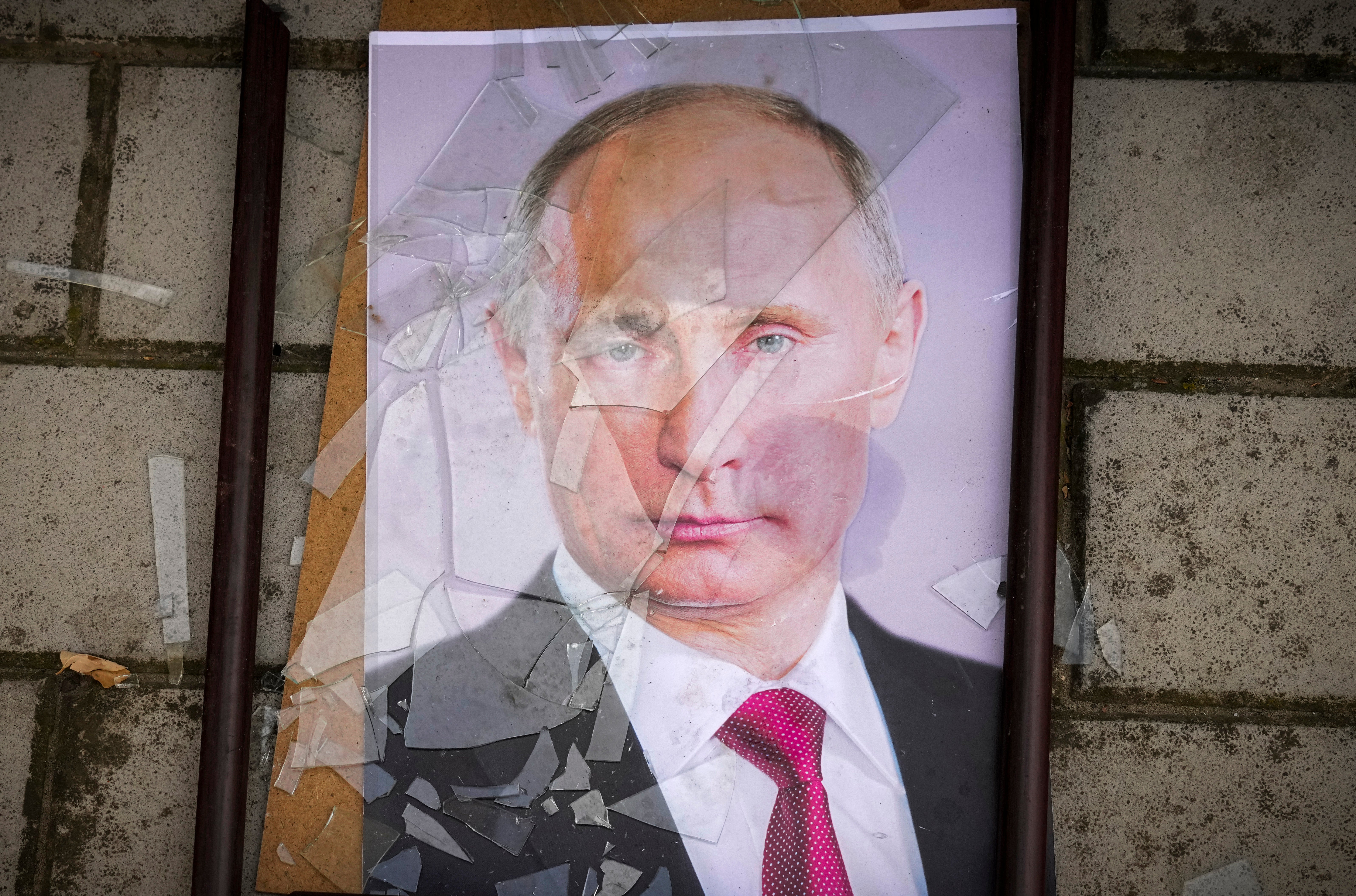Russia’s crimes will catch up with it eventually
Editorial: One day, and perhaps sooner than many assume, Russia will have to give up its neo-Tsarist ambitions and rejoin the community of civilised nations

As the harrowing accounts of torture reported by The Independent’s Bel Trew highlight, Russia is conducting a war of terror against Ukrainian civilians.
The more it fails on the battlefield and is forced to retreat, the more it turns its attention to destroying civilian infrastructure, taking hostages, abducting people, and continuing to rape and murder anyone unfortunate enough to have been captured by Russia’s ill-disciplined forces. In fact, the indiscipline seems to have been at least officially inspired, if not ordered; such is the way that civilians and prisoners of war are routinely maltreated and abused.
Unable to advance against Ukraine’s increasingly formidable Western-equipped defences, the Russians resort to destroying electricity plants, disrupting the supply of energy to homes. The rocket and drone attacks have been indiscriminate. Farms, apartment blocks, hospitals, schools, nurseries and historic and cultural landmarks have been targeted, because another of Russia’s war aims is erase Ukraine’s distinctive national identity and traditions.
Especially reckless has been the close targeting of buildings close to nuclear installations; extraordinarily stupid given that the winds can easily carry radioactive materials towards Russian troops and Russia itself. Then again, the Kremlin hasn’t shown much compassion towards its own people.
Russia’s “special military operation” in Ukraine has long since lost any semblance of being a struggle to liberate a sister people from “Nazi” rule, and degenerated into one where war crimes are the norm, and conventional military engagements more like the isolated exceptions to the general run of the fighting.
It is a sign of Russian weakness, as well as essential barbarity. It is the same kind of tactics deployed elsewhere by Russia and its puppet allies, and the stories told are no less harrowing.
The experiences described in our reports are reminiscent of Nazi and other war crimes during the Second World War, and of the atrocities committed during the conflicts in former Yugoslavia, as well as by Russia and its allies in Syria, Chechnya and elsewhere. But in scale – as well as unrelenting sadism – the assault on Ukrainian citizens must be the most serious in Europe since 1945.
There is little comfort to be drawn from any of this. However, by all accounts, the mass bombings and victimisation of civilians seem only to have strengthened Ukrainian resistance. It is a little surprising that there seems to be no one in the Kremlin who understands the lessons of history in this field.
So far from destroying civilian morale and leading to capitulation, carpet bombing of civilian areas and the use of rape and murder as terrorist weapons of war serve only to remind those attacked of how intolerable life would be if the invader ever prevailed and occupied their land.
It took two nuclear attacks on large cities to persuade the Japanese to surrender in 1945; the blitz in Britain gave rise to a famously defiant spirit; the Vietnamese were not cowed by the B-52s carpet bombing their homelands; and, closer to home, the famous siege of Stalingrad showed just how determined and territorial people can be about a pile of rubble (if it’s their pile of rubble).
So President Putin’s tactics will fail, provided the people of Ukraine know they have the West on their side. It was striking, for example, that first lady Olena Zelenska told British MPs on her visit: “Your islands survived the air raids, which were identical to those that Russia uses now to put us on our knees. We’re hearing sirens every day identical to those which were heard by earlier British generations. You did not surrender and we will not surrender.”
To keep up to speed with all the latest opinions and comment sign up to our free weekly Voices Dispatches newsletter by clicking here
Each time after a Russian withdrawal, the Ukrainian authorities find evidence of torture chambers and collect accounts of unprovoked attacks on families. They are carefully corroborated and documented by intentional war crimes investigators, the evidence gathered in preparation for eventual war crimes trials. Their efforts are observed and reported on by a free Western media.
It may seem a remote possibility that Vladimir Putin or any of his generals and officials will ever face a tribunal – but that would be wrong. Slobodan Milosevic and Radovan Karadzic didn’t expect to end up standing trial. Neither did the butchers of the Khmer Rouge, the genocidal killers in Rwanda, or, indeed, the Japanese and Nazi leaders after 1945.
One day – and perhaps sooner than many assume – Russia will have to give up its neo-Tsarist ambitions and rejoin the community of civilised nations. When it does, it will have to disgorge its war criminals to face justice, just as happened with Serbia, Rwanda, Cambodia and Germany before. Their crimes will catch up with them.
Join our commenting forum
Join thought-provoking conversations, follow other Independent readers and see their replies
Comments
Bookmark popover
Removed from bookmarks